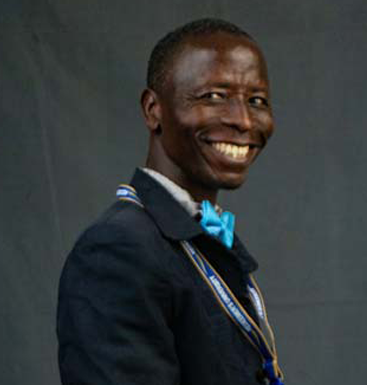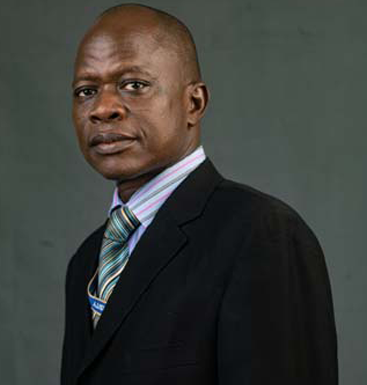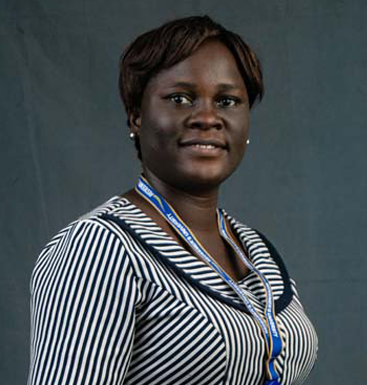Admission Requirements
(a) UTME
(i) 5 ‘O’ Level/SSCE credits or 6 ‘O’ Level/SSCE credits in one or two sitting(s); credits to include: English Language, Mathematics, Economics and other relevant subjects
(ii) Minimum UTME requirement as set by JAMB in relevant subjects
(b) Direct Entry Requirements
(i) In addition to ‘O’ Level requirements, candidates must have passed at credit level in at least two Social Sciences or related subjects in the H.S.C. or G.C.E. ‘A’ Level (The grade point to be determined by the department from time to time)
(ii) National Diploma in Business, Finance, Accounting or any other relevant discipline with at least Upper Credit from approved Polytechnics and Colleges of Technology or Final Certificate of relevant Professional Bodies
(iii) University Diploma in Business Management, Financial Studies, Accounting and other University Diploma acceptable to the Department with a minimum of Upper Credit
Career Prospects
Every day, people around the globe make choices from a limited pool of options and resources. These choices are not left to individuals only as governments and organizations are also faced daily with making choices to satisfy needs and demands.
The interesting study of why these choices are made, the trade-offs made and their implications are in nutshell, Economics.
Economics is the science of human choices; a study of how limited and scarce resources are allocated among competing uses to satisfy our wants. It’s about the world around us, how we behave, how businesses and government behave and how world markets work all in the bid to satisfy and promote development.
The degree of Economics at Redeemer’s University is aimed at students who are ambitious and display mathematical capabilities. The course provides in-depth knowledge of the principles, theories, analytical and numerical skills required to apply the knowledge of Economics into a wide range of issues in business, financial, industrial and governmental environments.
Our curriculum and teaching methods also provide students with logical and consistent framework for understanding the concepts in Economics.
Our broad-based course aims to produce Economists with a range of technical expertise relevant in understanding socio-economic and political issues.
Economics is one of the best courses in the Social and Management Sciences. It deals with how agents in the society allocate their scarce resources among their competing ends in order to achieve their objectives.
Most of the courses in the Social and Management Sciences originated from Economics. Some of them include: Accounting, Business Administration, Finance, Banking and Finance, Human resource Management, Marketing, etc.
In view of the above, there are several specialisations in Economics such as: Development Economics, Health Economics, Human Resource Economics, Information Economics, Behavioural Economics, Finance Economics, Industrial Economics, Trade Economics, Sports Economics, Airline Economics, Forensic Economics, Water Economics, Aviation Economics, Crime Economics, Econometrics, etc.
Due to the wider scope and specializations, there is no organisation that a graduate of Economics cannot work. In fact, all establishments across the globe compete for graduates of Economics. This is why it is difficult for a graduate of economics to remain unemployed. Economics graduate can work as:
- Economist
- Actuarial Analyst
- Accountant
- Financial Planner
- Banker
- Data Analyst/ Analyst
- Financial risk analyst
- Teacher
- Lecturer
- Researcher
- Diplomatic Service Officer
- Local Government Officer
- Manager
- Forensic Accountant
- Investment Analyst
- Statistician
- Stockbroker
- Civil Servant
- Data Scientist
- Management Consultant
- Business and Financial Consultant
- Investment Analyst
- Business Developer
- Public Sector Roles
Organizations where graduates can work,
- Banks – Commercial and Central Banks
- Other financial Institutions
- Telecommunication/utilities firms
- Government Establishments-ministries and parastatals
- Research institutes and think tanks
- Universities
- Private companies
- NGOs , e.t.c.
- UN organisations
- International Financial Institutions
- Global and regional political and economic groups
- Global and regional interest groups
- International Labour Organisation (ILO)
- World Trade Organization (WTO)
Staff Directory

Senior Lecturer
Dr Adewara Sunday Olabisi
Research Area
Health, Basic Needs and Welfare
Contact Information
- adewaras@run.edu.ng
- 08104267628
- Research Gate
- Google Scholar

Senior Lecturer
Dr Dauda Rasaki Stephen
Research Area
Development and Health Economics issues
Contact Information

Lecturer II
Dr Mrs Adeleke Oluwayemisi Kadijat
Research Area
Financial Economics, Development Economics and Macroeconomics
Contact Information

Lecturer II
Dr Mrs Ajeigbe Omowunmi Monisola
Research Area
Development, Financial, Industrial Economics and Applied Econometrics
Contact Information
- ajeigbeo@run.edu.ng
- 08036151959
- Research Gate
- Google Scholar

Lecturer I
Dr Oyeleke Olusola Joel
Research Area
Public Finance; Development; Energy; Macroeconomics
Contact Information
- oyelekej@run.edu.ng
- 08035022379
- Research Gate
- Google Scholar

Lecturer II
Dr Onatunji Olufemi Gbenga
Research Area
African Literature, Gender Studies, and Culture Theory
Contact Information

Assistant Lecturer
Mr Ojo Segun Michael
Research Area
Industrial Economics, Econometrics
Contact Information

Lecturer I
Mr Olabode Oluwayinka Samuel
Research Area
Human Capital and Technology
Contact Information
- olabodeo@run.edu.ng
- 08024245421
- Research Gate

Prof Ajisafe Rufus Adebayo

Lecturer II
Mrs Oluwayemisi Olatokunbo Aina
Research Area
Energy & behavioral Economics
Contact Information
- oluwayemisio@run.edu.ng
- 08038589587
- Research Gate
- Google Scholar
